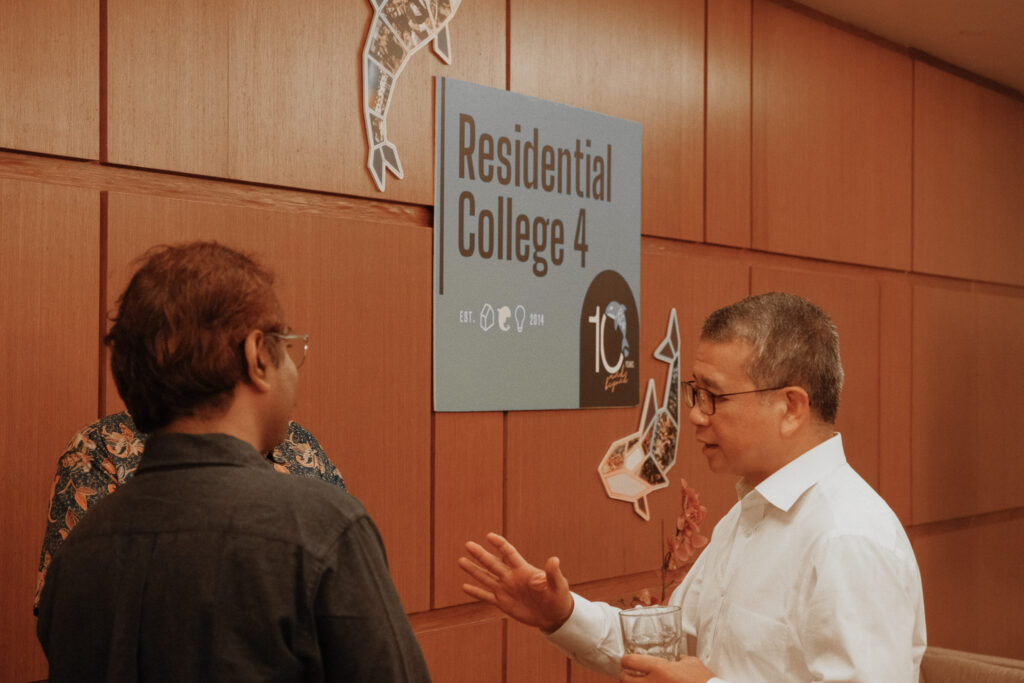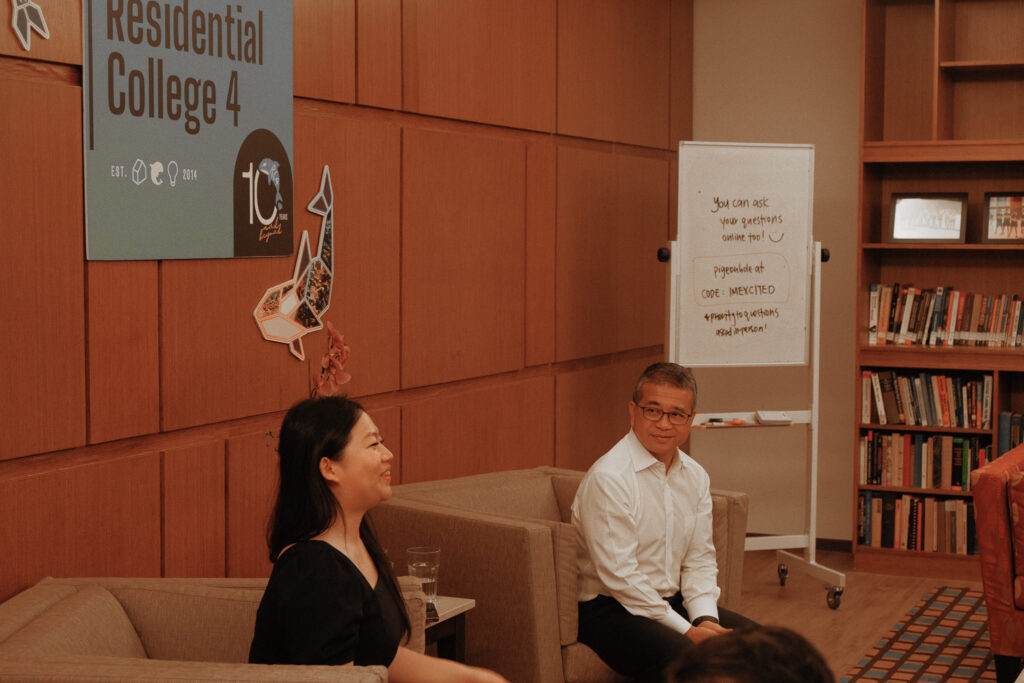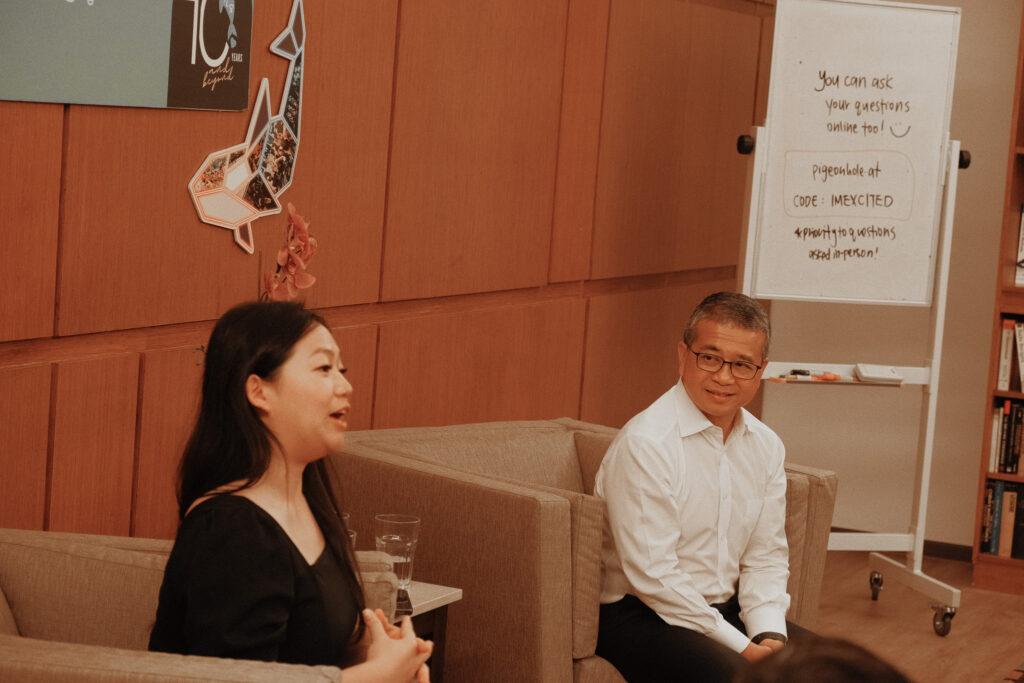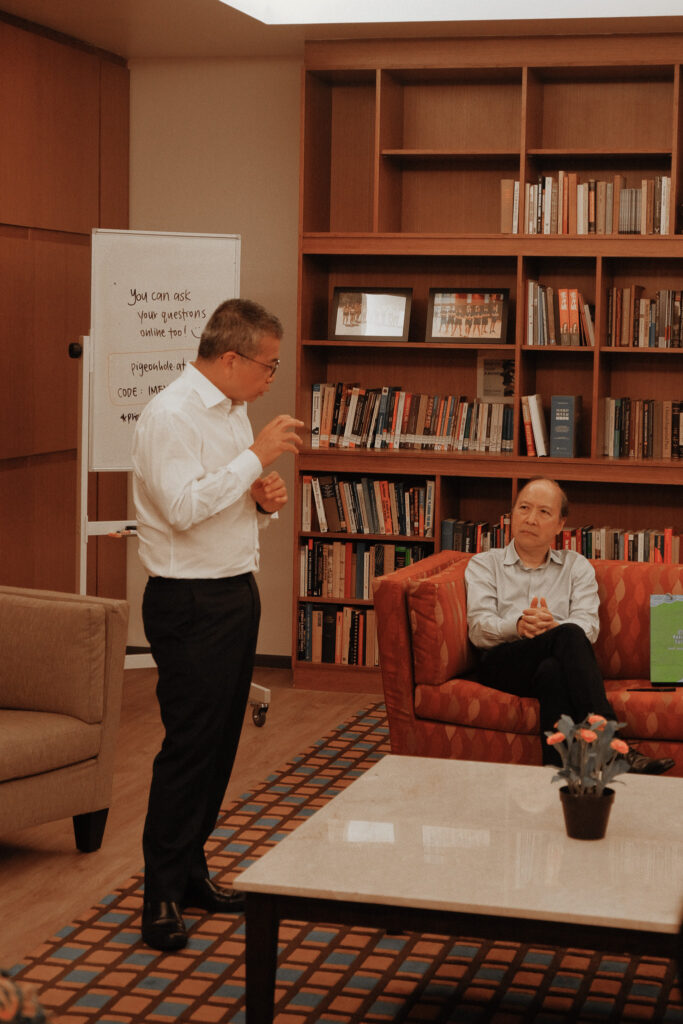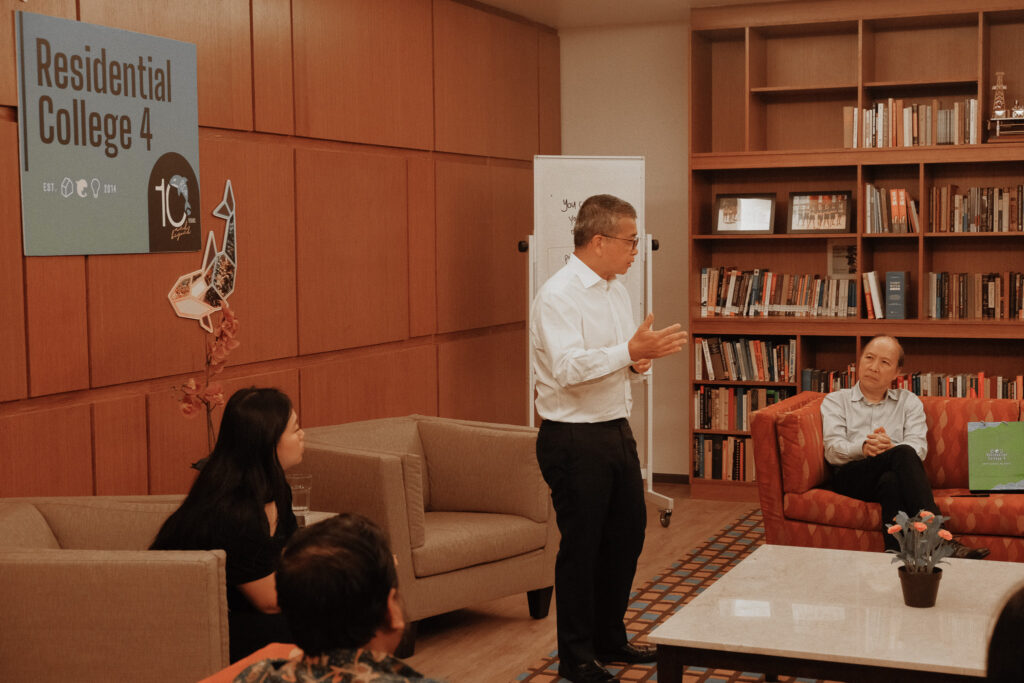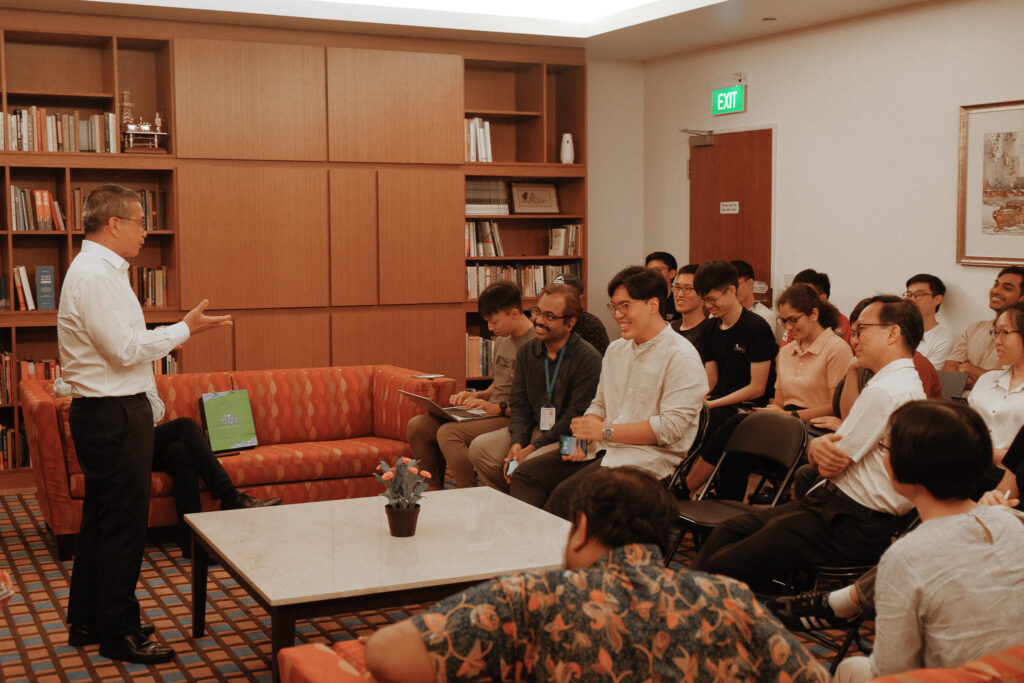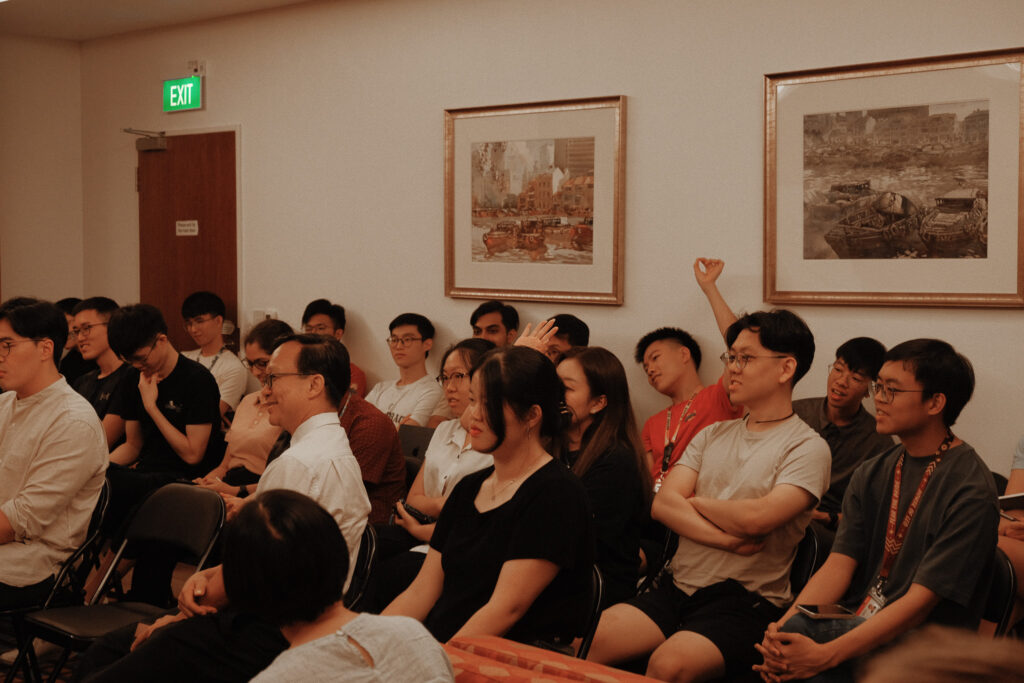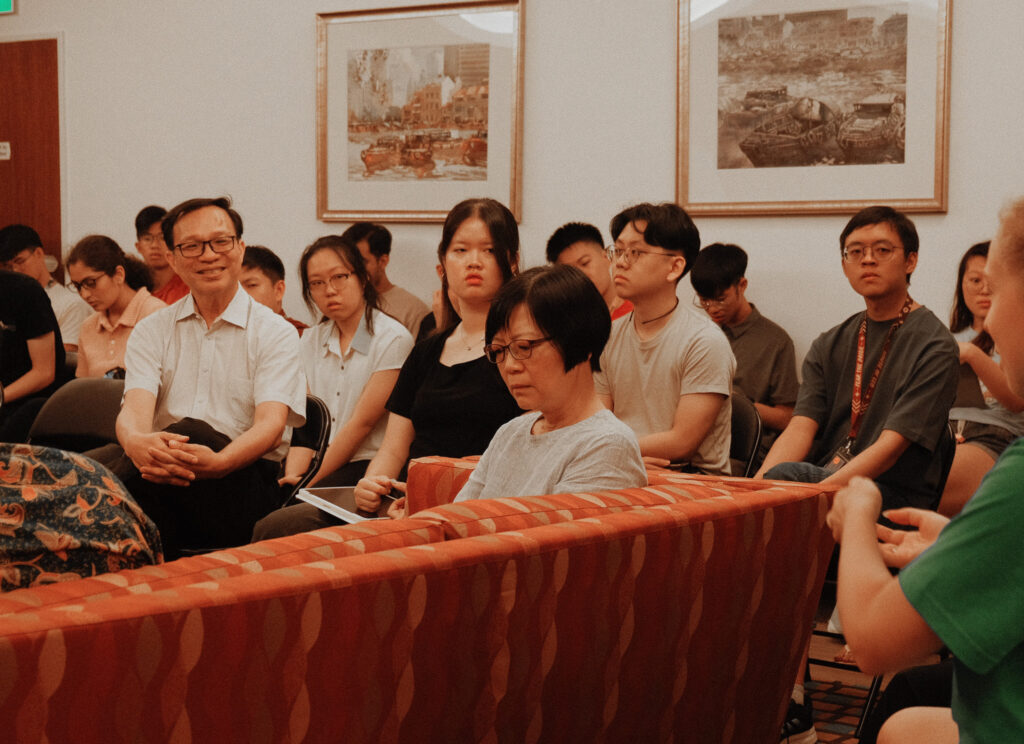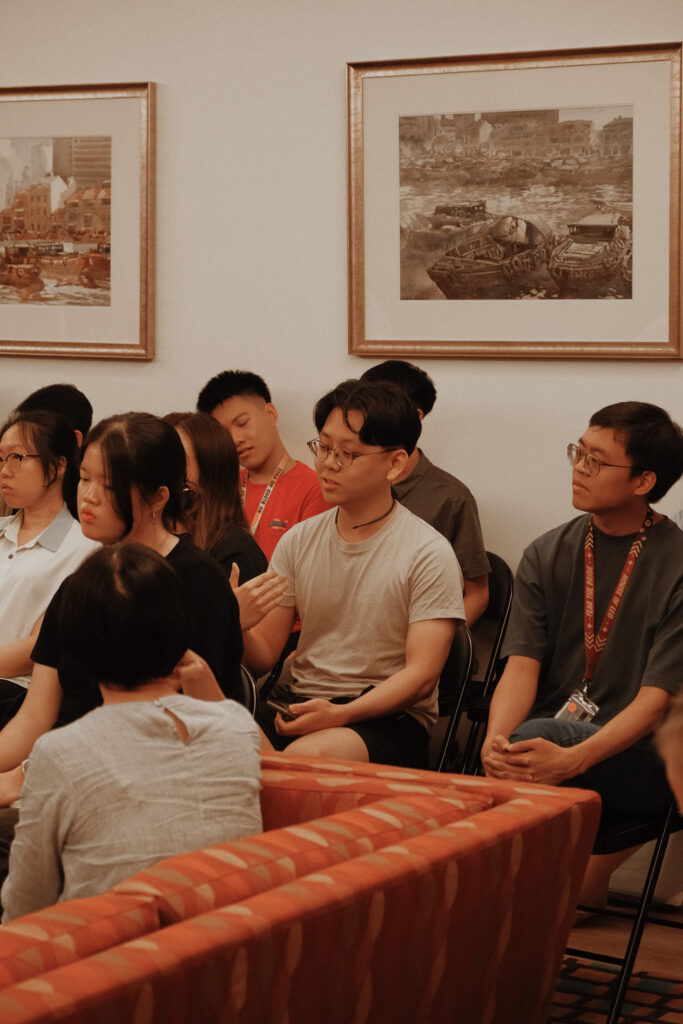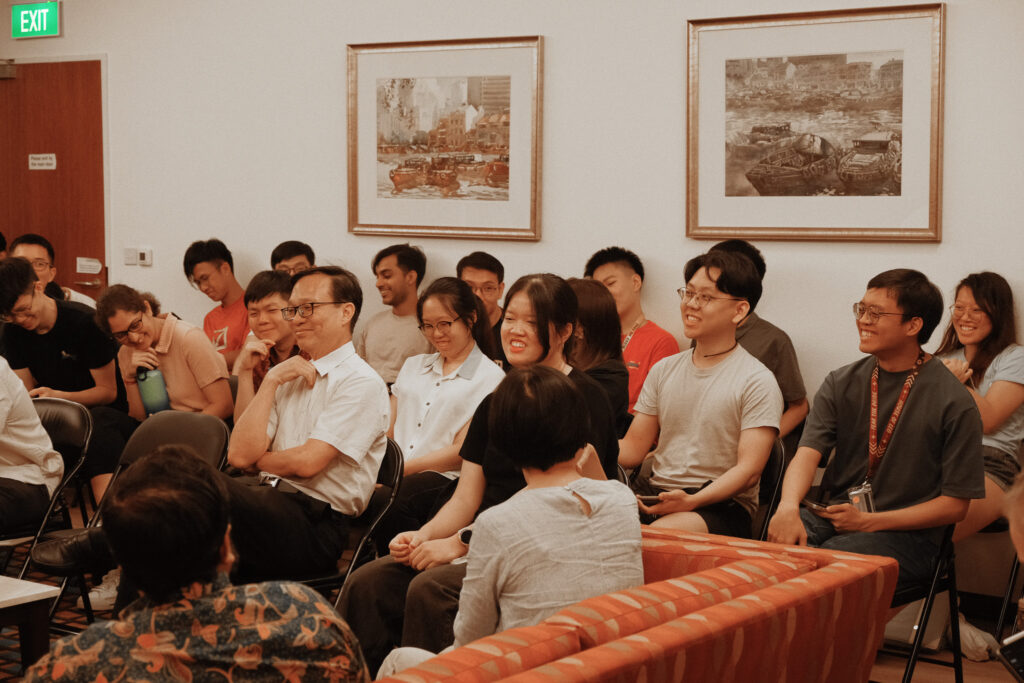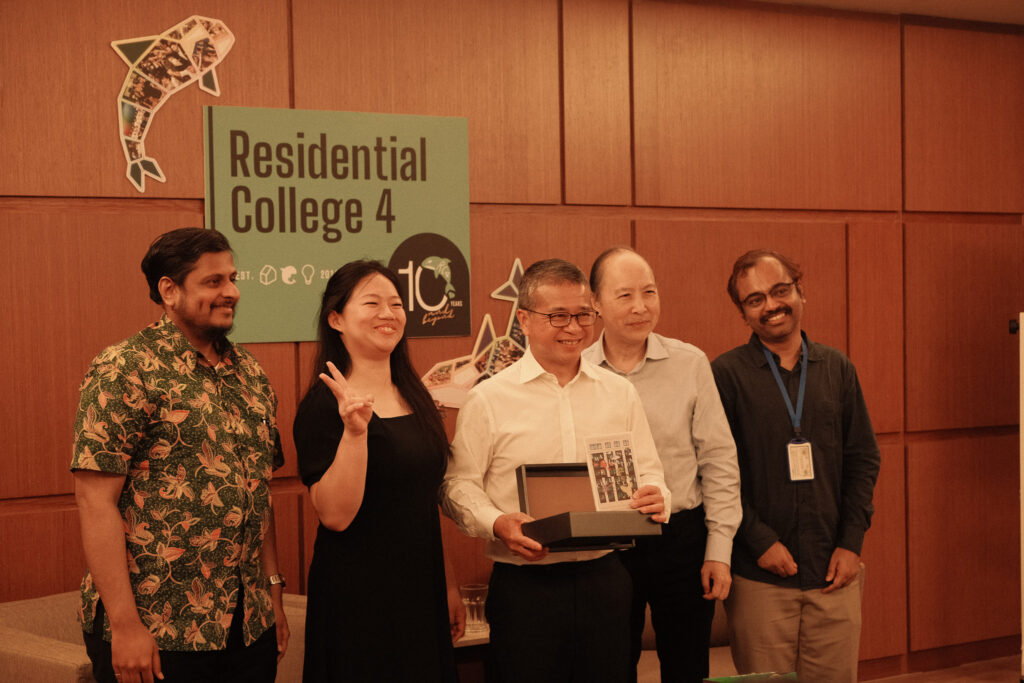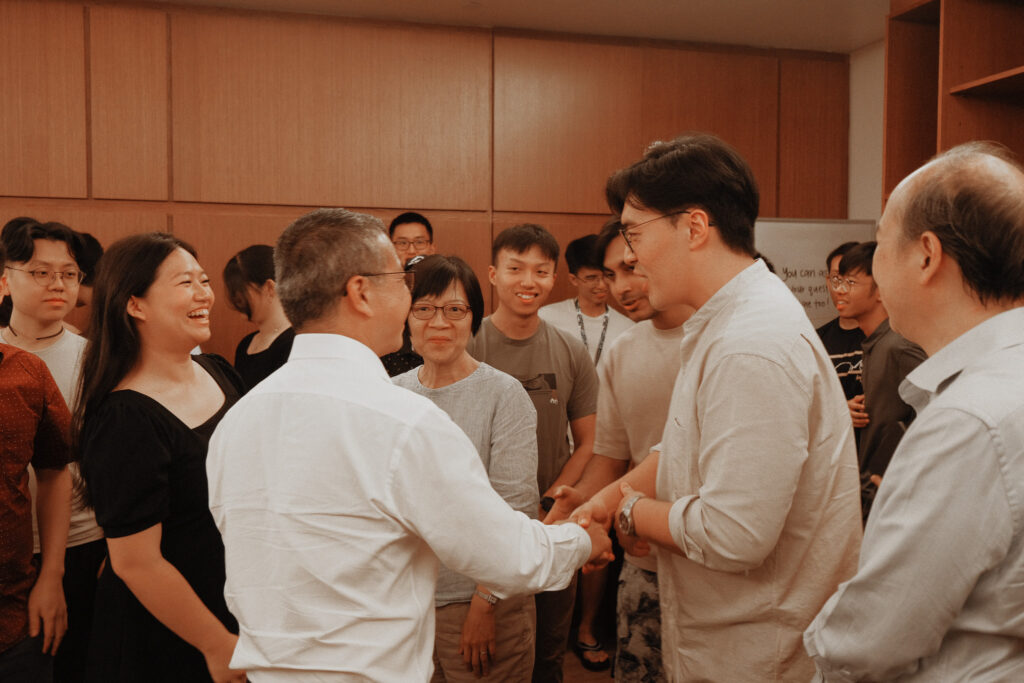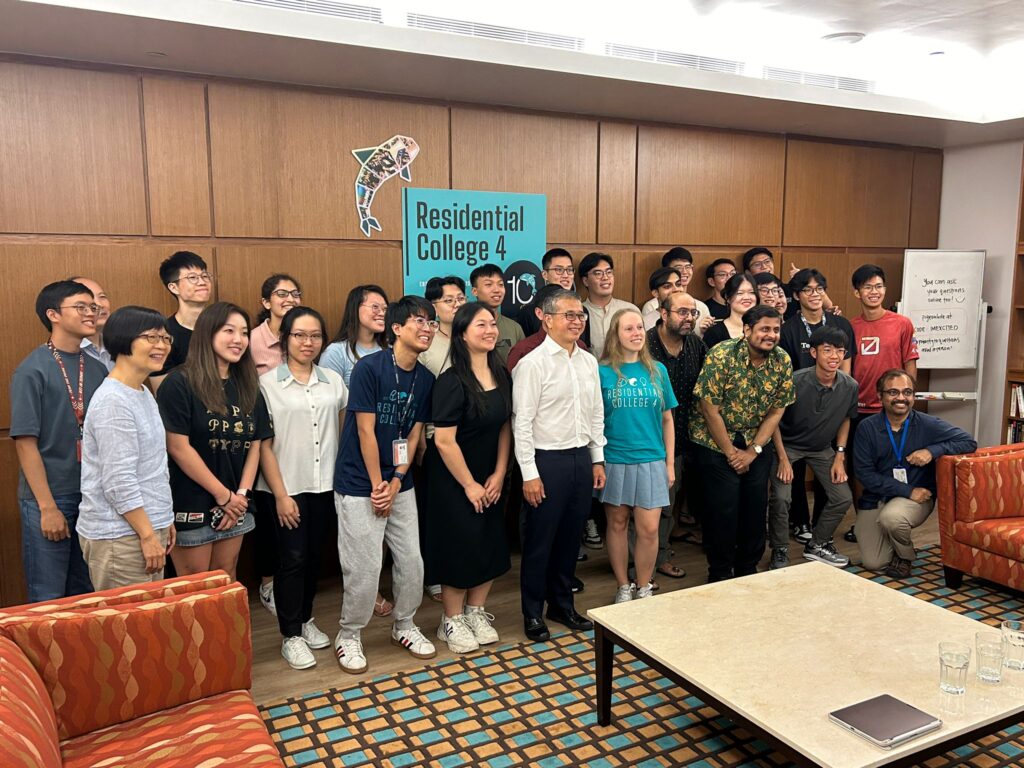[Perspectives] Revisiting the Social Compact in Multicultural Singapore
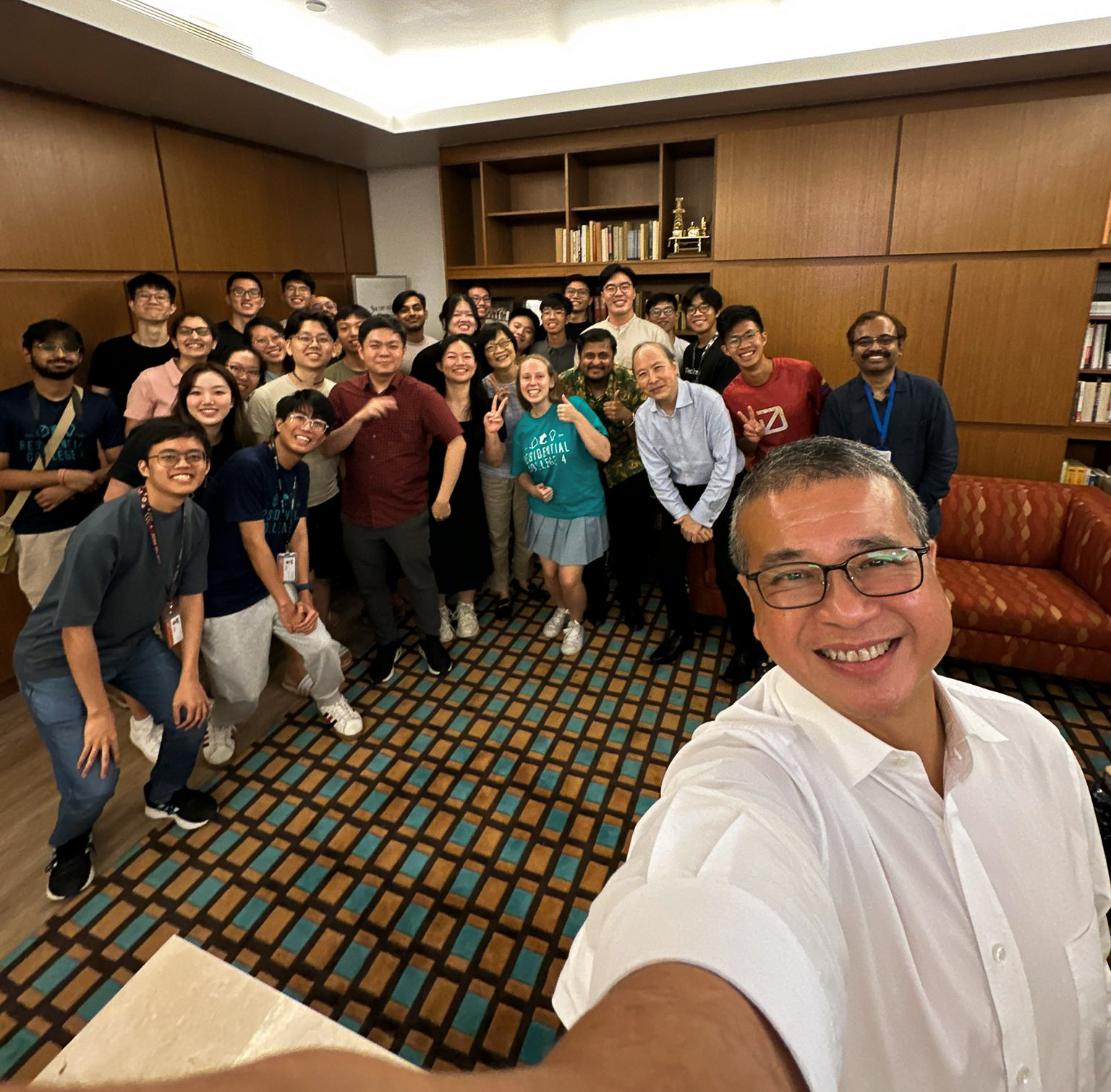
Revisiting the Social Compact in Multicultural Singapore with Minister Edwin Tong
11 September 2024
Mr Edwin Tong, who is the Minister for Culture, Community and Youth and Second Minister for Law was the guest speaker at a student dialogue titled 'Revisiting the Social Compact in Multicultural Singapore: Local Exigencies and Global Influences.' This event took place at the Master's Common Lodge on Wednesday, 11 September 2024 from 7.30pm to 9.30pm, and moderated by Ms Winnie Tan, who is the President of Residential College 4 (RC4)'s 10th College Students' Committee.
Organized by RC4 as part of the Cognitio Perspectives series and an extension of the 'Religion, Governance, and Policymaking in Singapore' course, the dialogue drew over 30 students and several faculty members. It was an engaging and insightful dialogue session, with the discussion centred on Singapore’s evolving social compact, considering both domestic shifts and global trends. The diverse range of questions asked by students, including on micro-aggressions, identity politics, arts and sports, woke culture, interfaith, and youth engagement in policymaking helped to better understand the important policy work being done by the Ministry of Culture, Community and Youth in preserving social harmony. The students in attendance resonated with the personal anecdotes generously shared by the Minister and were particularly impressed by his familiarity with the lingo of Generation Z.
One common thread throughout the discussion was how the social compact needed to evolve in order to adapt to domestic needs and global influences so that Singapore is able to maintain its closely-knit and unique multicultural, multi-ethnic and multi-religious social fabric. What was also emphasised is the pivotal role of youths in updating the social compact as the newer generations may have varying interests, needs and considerations. Of significant note was the accentuation that Singapore’s secular governance is a cornerstone of its collective success, enabling religious communities to coexist peacefully and communicate effectively to promote interfaith harmony.
A key takeaway from the dialogue is that awareness leads to empathy and compassion, which then fosters appreciation—a flow that is crucial for embracing Singapore’s multicultural mosaic and ensuring its social compact remains resilient and relevant. It was certainly a successful event that generated knowledge, ideas and recommendations, and the hope is that this dialogue is the beginning of more student-led conversations about the role of culture in social systems in congruent with the ethos of RC4 internalising 'Small Systems, Big Hearts.'


